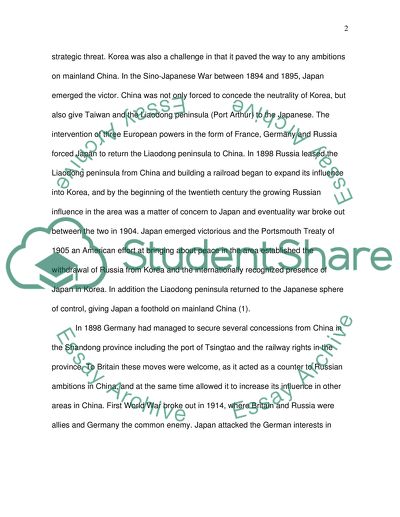Cite this document
(“Japan's 21 Demands of the Chinese government in 1914 Essay”, n.d.)
Japan's 21 Demands of the Chinese government in 1914 Essay. Retrieved from https://studentshare.org/miscellaneous/1542962-japans-21-demands-of-the-chinese-government-in-1914
Japan's 21 Demands of the Chinese government in 1914 Essay. Retrieved from https://studentshare.org/miscellaneous/1542962-japans-21-demands-of-the-chinese-government-in-1914
(Japan'S 21 Demands of the Chinese Government in 1914 Essay)
Japan'S 21 Demands of the Chinese Government in 1914 Essay. https://studentshare.org/miscellaneous/1542962-japans-21-demands-of-the-chinese-government-in-1914.
Japan'S 21 Demands of the Chinese Government in 1914 Essay. https://studentshare.org/miscellaneous/1542962-japans-21-demands-of-the-chinese-government-in-1914.
“Japan'S 21 Demands of the Chinese Government in 1914 Essay”, n.d. https://studentshare.org/miscellaneous/1542962-japans-21-demands-of-the-chinese-government-in-1914.


